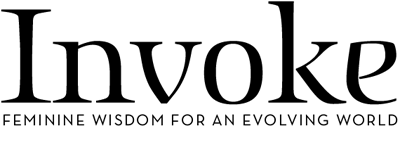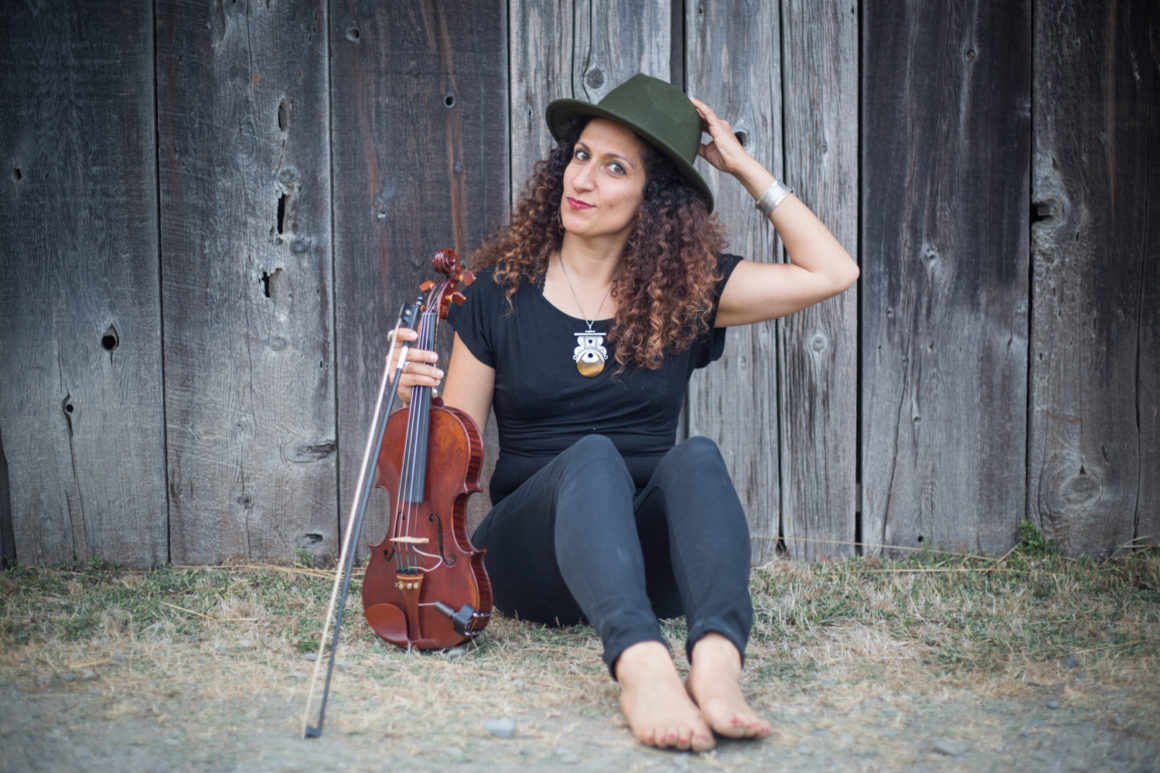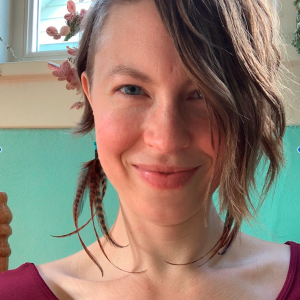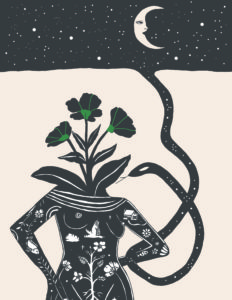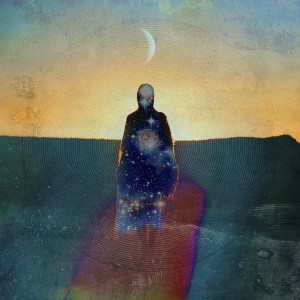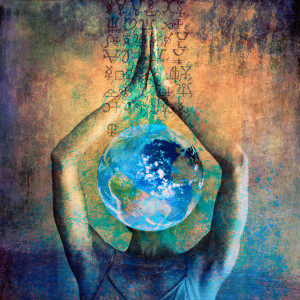In these turbulent times on earth, we need music that reconnects us—to ourselves, to one another, and to our gratitude for this world. Lydia Violet’s new album, “Already Free,” does just that. Based on her deep study with her teacher Joanna Macy, Lydia created an album to strengthen our hearts and ignite our spirits.
Lydia has been playing music all her life, but she didn’t always see it as her central path. Eight years ago Lydia took a seemingly random leap of faith that led her to meet her teacher, Joanna Macy, a wisdom keeper and grandmother of our time. Joanna’s work is based in deep ecology, Buddhism, systems theory, and 50-plus years of international activism. When Lydia met Joanna, she had no idea this connection would completely alter the path of her life, leading her to become a facilitator of Joanna’s Work that Reconnects and a musician raising her voice for justice. It was when Joanna invited Lydia to play her violin at workshops that Lydia discovered the medicinal power of music.
Today, Lydia performs solo, as well as with artists such as Ayla Nereo, Rev. Sekou & the Holy Ghost, The Polish Ambassador, and the collaboration Wildlight. Lydia leads multi-day voice immersions with musicians such as Rising Appalachia, MaMuse, and Ayla Nereo, in order to foster resilience through song. She teaches that music is medicine and that even in dark times we can use the healing power of song to come together and stand for goodness. I had the pleasure of spending an evening with her in her cozy apartment in Berkeley, seated at a low table on colorful cushions among a plethora of musical instruments. I wanted to find out Lydia’s path with the Work That Reconnects and how it led her to sharing her voice with the world.
How do you work with music as a medium for change? 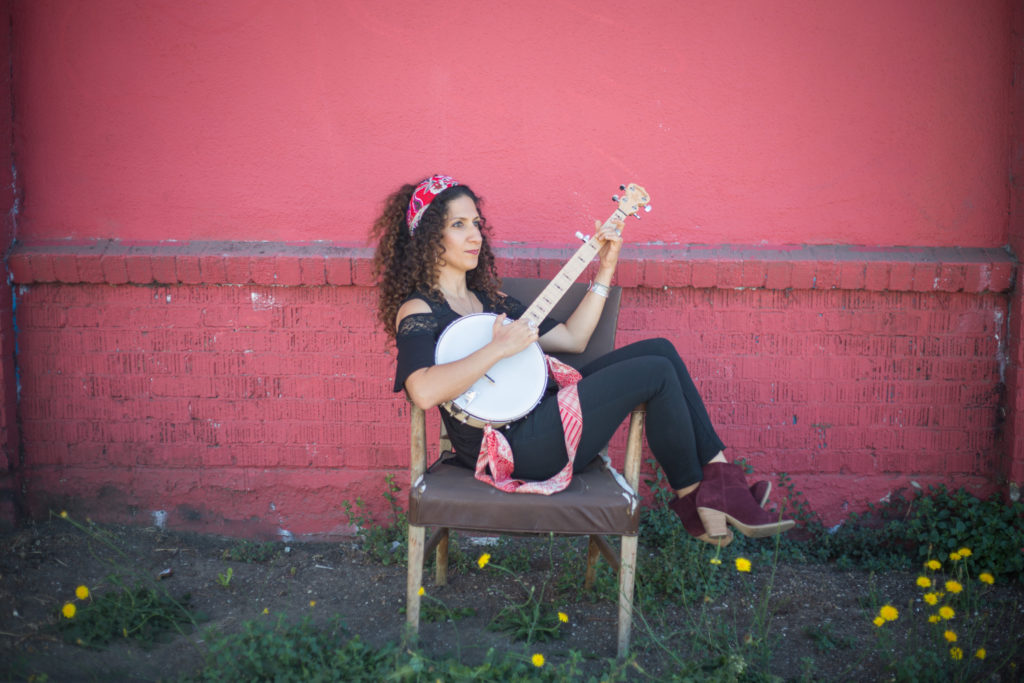
Music has been cultivated for centuries to help sustain the human spirit and the heart and help us feel expressed and seen. I think we can take for granted the things that nourish and keep us resilient in doing the work of change. I think about the civil rights movement—music was integral. There was no march without music. In that community there was already a thriving intelligence that knew how fundamental music was to keep spirit going.
Music wasn't always necessarily a central element in my life like it is now. Now that I'm consciously studying the different ways that music helps heal human beings and communities, it's fundamental. I'm just like, "Oh my God. The music and the Work That Reconnects are completely related."
How did you first connect with Joanna Macy and the Work That Reconnects?
I went to the California Institute of Integral Studies for the drama therapy orientation. I wanted to study the shamanic roots of theater, because I’d been a theater student. I went to the orientation and it was more the clinical use of theater in clinical settings. I realized that wasn't what I was interested in. I went to go meet a friend who was in the philosophy, cosmology and consciousness orientation and I caught the last 10 minutes.
I was like, "What is this?" The nature of what they were talking about was something I’ve always been interested in, but I didn't know a whole field of people were studying it and teaching it. I ended up enrolling in that program. I had Joanna in my first semester, and she started teaching about the Great Turning in the very first session.
She started speaking about what was happening in the world. As soon as she named our pain for the world, I started bawling in the corner. She had named something I had been carrying around but had never been named and I had always taken as a personal fault: “I'm too sensitive, I'm depressed, I'm too empathic, I care too much. I'm affected too much by the homeless person on the street.” It was this experience of all of those people that I've ever felt that kind of empathy for, being with me. I could invite them all back in.
That was eight years ago. Her husband had just passed away when she started teaching the class, so I think she was especially open to nurturing relationships and we just naturally had one. I would go help her once in awhile. Then she started asking me to play violin during workshops or talks or poetry readings. Then it moved from there into actually assisting with workshop facilitation. That took four, five years. It was a lot of diligent listening and observing and studying. Doing the Work that Reconnects up to 15 times a year. Which I needed to do.
It's a huge reason why I navigate the world way better now than I did 10 years ago. I feel like, oh, a difficult thing in the world? I can look at that head-on now. A lot more than I used to be able to. Because that fundamental principle, I think I've embodied now—that the pain I feel in that moment is a reflection of how much I care and that's good news. It's not something I have to be afraid of.
Would you say that the practice of being with our pain for the world is the essence of the Work that Reconnects?
In my experience, it's one of the fundamental inner shifts a person can experience because of this work. Even just naming that is liberating for people.
There's a couple of things that could be general fundamentals. One is that there are three stories of our time on this planet. We’re always walking around and living in and participating in these three stories. None of them supersedes the other; they're all happening at the same time.
The first one you could talk about is Business as Usual.
That's the hallmark story of consumerist culture and the industrial growth society. In that, everything is normal, things are okay, just keep shopping and going to work, buy a house, put your kids in school, that whole thing—that status, mainstream story. Which isn't to be demonized. It's one story that we're living into and accepting as normal. The main problem with it is that it says everything is fine. “This is normal, don't question it, everything is fine.”
When meanwhile …
The Great Unraveling is happening. Which is what Joanna calls the second story. The unraveling of life systems—systems that can support life on the planet. Which is pretty big! It's happening and we're all part of this body, this larger body of earth that's dying all over the place and suffering a lot. There's a lot of people suffering. We talk about “when the crisis comes here,” but it's already been happening for a long time with a lot of people all over the world.
Yes, both of those stories—Business as Usual and the Great Unraveling—can be so overwhelming. Where do we turn?
The third story is the story of the Great Turning. Which is the transition from an unsustainable way of living to a more sustainable way of living or from an industrial growth society to a life-sustaining society.
I think in so much you can see all three. All the different ways that people are trying to heal culture and the earth and each other. There's never been a time in human history where so many people have been participating in trying to generate more sustainable ways of doing things.
As we navigate these three stories, how can we use music as medicine in our own lives?
By listening to music that meets you wherever you need to be met inside, in order to be understood. To not negate that your internal world needs nourishment. A lot of us grow up with shame around making music in our culture. If you’re someone who has always thought, “I would like to be able to sing or make music” or if you’re inspired to do another art, go pursue the things you need in order to do that. Whether that’s buying a pen and paper or finding the people to sing with where you can feel safe. It’s totally okay to need that, and to take it for yourself, and to honor it in others too.
Yes, it seems so important to find our unique place in all of this—to give the gifts we have to give. Do you have any advice about how we as individuals can find our way to contribute to the Great Turning?
The framework I found really helpful relates back to that third story, the story of the Great Turning. The Great Turning is really important for us to be able to track and then see it and sing it and dance it and write it and throw money at it and whatever it is that we want to do. The three dimensions of the Great Turning are a way that Joanna found that was helpful to map and be able to recognize how you participate in it and recognize it in the world.
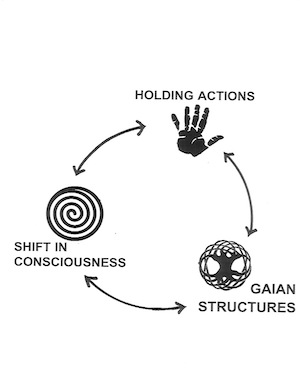 Holding actions are usually what we imagine when we think of activism. Holding actions are all of those actions people take and the earth takes in her own reparative way to slow down destruction. It's all the people who are lobbying. It's all the people who are trying to document the contaminants that are in water or the contaminants that are in the land. All the things people are doing to call out and slow down destructive practices. Those things are usually what people think of when they think of activism.
Holding actions are usually what we imagine when we think of activism. Holding actions are all of those actions people take and the earth takes in her own reparative way to slow down destruction. It's all the people who are lobbying. It's all the people who are trying to document the contaminants that are in water or the contaminants that are in the land. All the things people are doing to call out and slow down destructive practices. Those things are usually what people think of when they think of activism.
We have these other two dimensions also. One of them is creating more sustainable ways of doing things. It could be planting food; it could be the economy. It's how we live together.
Then the third one is the shifts in consciousness work. Almost every decision we make is exactly that, it's a decision. Every action we make comes out of a decision or participation in the decision of another person. The way a grocery store is structured and the food they have in there was someone else's decision. It was an act of their consciousness, of their education. That's why shifts in consciousness are fundamental. You've got people participating in shifts in consciousness such as teachers, writers, and artists. They tend to be some of the ones that are the hardest on themselves. The musicians and the poets and the dancers and spiritual teachers.
Yes, I’ve heard you say that each of the three types of work has its own challenges, and that those working with consciousness shifting tend to experience a lot of self-doubt. Can you share about that struggle?
That's real. The reason why Joanna named it as fundamental is that the new ways of doing things will never take root unless our consciousnesses shifts also. Human beings are beings of consciousness. We act out of consciousness.
In my observation, the people involved in shifts of consciousness work are usually the ones that doubt they're doing anything useful at all.
It's healthy to question if you're being helpful, and we all need to get pretty humble and question that for ourselves. Then on another side of it, we have to also try and have a lot of compassion for ourselves. Because we're beings of imagination, so we can imagine the whole planet healed in a second in our mind's eye. And then we return back to this world and I'm one person on Parker Street in Berkeley in the USA on planet Earth. Now I'm supposed to act. Of course we get overwhelmed, because we can imagine it like that. Then we're like, wait, okay, there's a whole thing happening. A whole ecosystem of hurts and blessings happening every day and then this is where I live and I have to try and figure out the best way to do it.
Also at the end of the day, you're a ridiculous miracle of mystery. That you're alive at all on a planet that's flying through space is ridiculous. We just wake up here. It's like, yeah, you have two eyes, yup, and you have a nose and a mouth and they're all pretty close to each other. Go! Then here's the time you're living in. Woah!!! We're just trying to figure it out. We don't know what's going to happen, but in every moment we're participating with a huge population of people who are trying to create something better.
That's why you're not alone and you don't have to carry it all by yourself. When you go to sleep, there's millions of other people carrying the torch so that you can rest. Then when you get up, you pick up the torch for them and you carry it so they can rest.
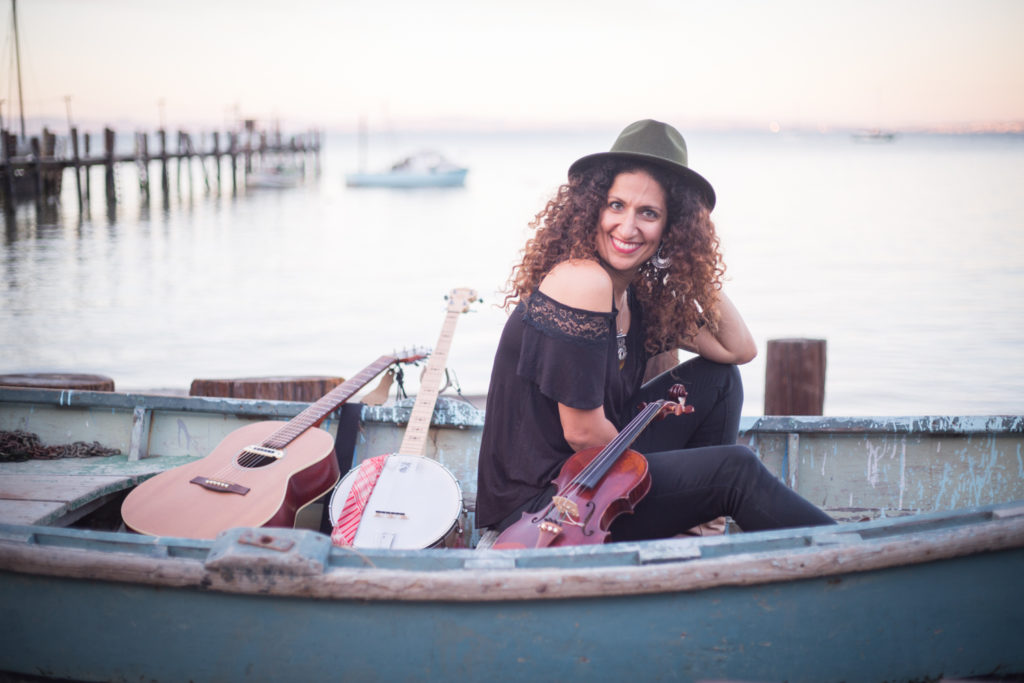 As a musician I imagine your work is primarily in the consciousness-raising dimension—how do you relate to that as part of the change that needs to happen in the order world?
As a musician I imagine your work is primarily in the consciousness-raising dimension—how do you relate to that as part of the change that needs to happen in the order world?
It’s fundamental and valuable to be an artist in the Great Turning. Artists sustain us in internal ways that we forget are a fundamental part of our experience being humans. We have internal landscapes that need nourishment, just like our bodies do.
What supports you to stay nourished and keep going in your work?
I have to play music at least every three days. Sometimes I have to play it every day to keep myself nourished. I'm so grateful that I'm taking it so seriously now.
It's also a fundamental way that I think we metabolize pain. Music is one of the last healthy ways that on a mass level we self-soothe. There's a lot of unhealthy ways that we on a mass level self-soothe.
I think it's also a very natural part of the human experience to want to create beauty in some way, in some form in the world. Someone might create it through a meal, and someone might create it through a phone call. Someone might create it through a painting. Someone creates it through a song. Again, those things aren't necessarily valued in a culture where engineered productivity is the most valuable resource.
At the end of the day we just try our best to act from the places we wish to live from, not knowing what’s going to happen. Unfortunately there are no guarantees, but there is still today. We are one person and we're participating in a story. What is your truest intention today, regardless of knowing the outcome tomorrow? I want to sing a song. I want to be helpful. I want to help heal a broken heart and help people put their hands together for our world’s benefit. I'd like to be a helpful person in the world.
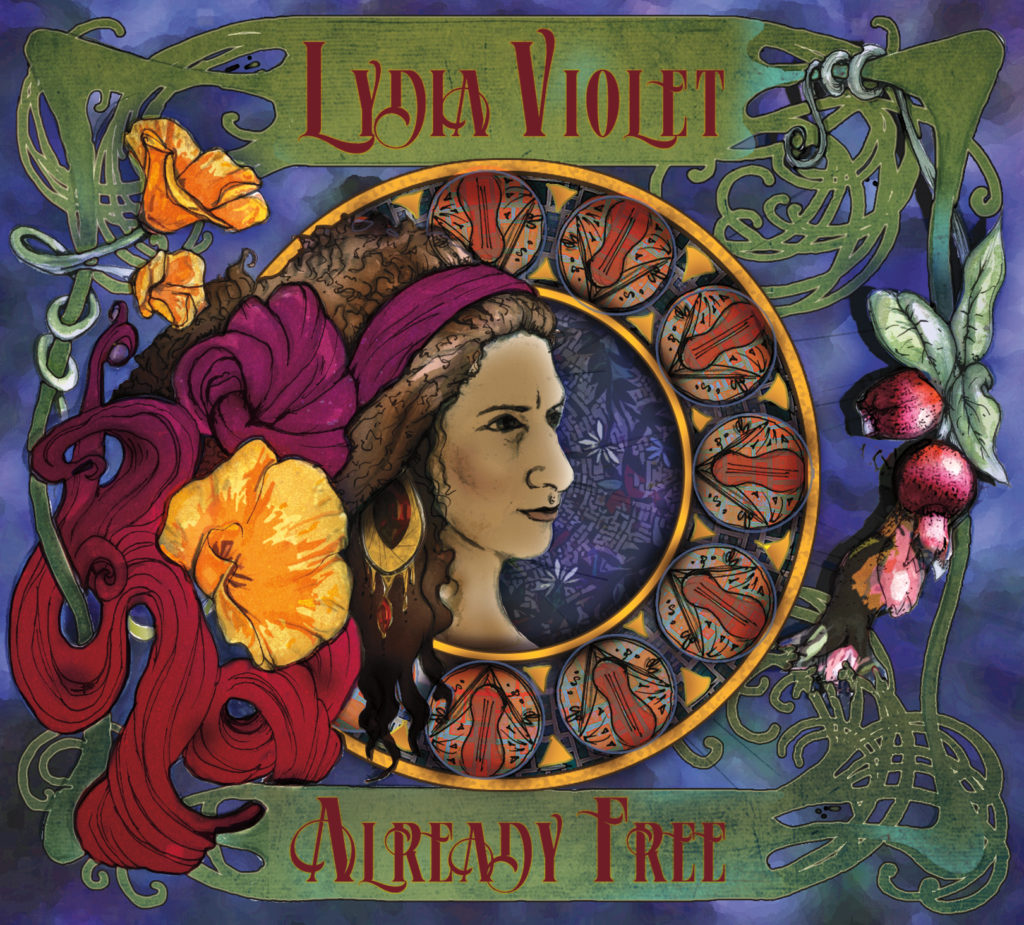 What is your intention for your new album “Already Free” as a medium for change?
What is your intention for your new album “Already Free” as a medium for change?
Every song I wrote is born from my exploration of my own experience and relationship to events in my life and the world. I feel like if I can speak to what’s happening in a way that’s safe and nuanced enough to be right on, the pain can come out from hiding and finally be seen as intelligence and awareness. The first song I wrote the first week Trump was on TV as a potential candidate. I woke up so tired, and I had that giving-up feeling within myself. Like I can’t. I can’t believe this man has a microphone. I can’t do this. I felt like that for three days and was in my own despair. Despair is still giving a damn, though. That’s the catch that we don’t learn in our culture. If you didn’t care, you wouldn’t feel a thing. In that moment you have all of life at your back, because you are letting in your care about what happens to your people, the more-than-human world, and future generations. You are reclaiming your interconnections with all of life. It was also the week it was raining a lot in California for the first time in a long time, so there was also relief. So I just got on my loop pedal and started singing this song. It’s born out of despair and relief and the hope that what’s been lost can come back. They’re very personal songs, but they end up being about bigger things. Every song is born of very tragic or exquisitely beautiful things happening in the world.
My hope is that this album can offer music that supports us in transforming our despair into the courage to come together, for that despair is not a weakness but an indication that we still give a damn about what happens to each other, and in our time that is a holy thing.
Photos by Brooke Porter Photography
